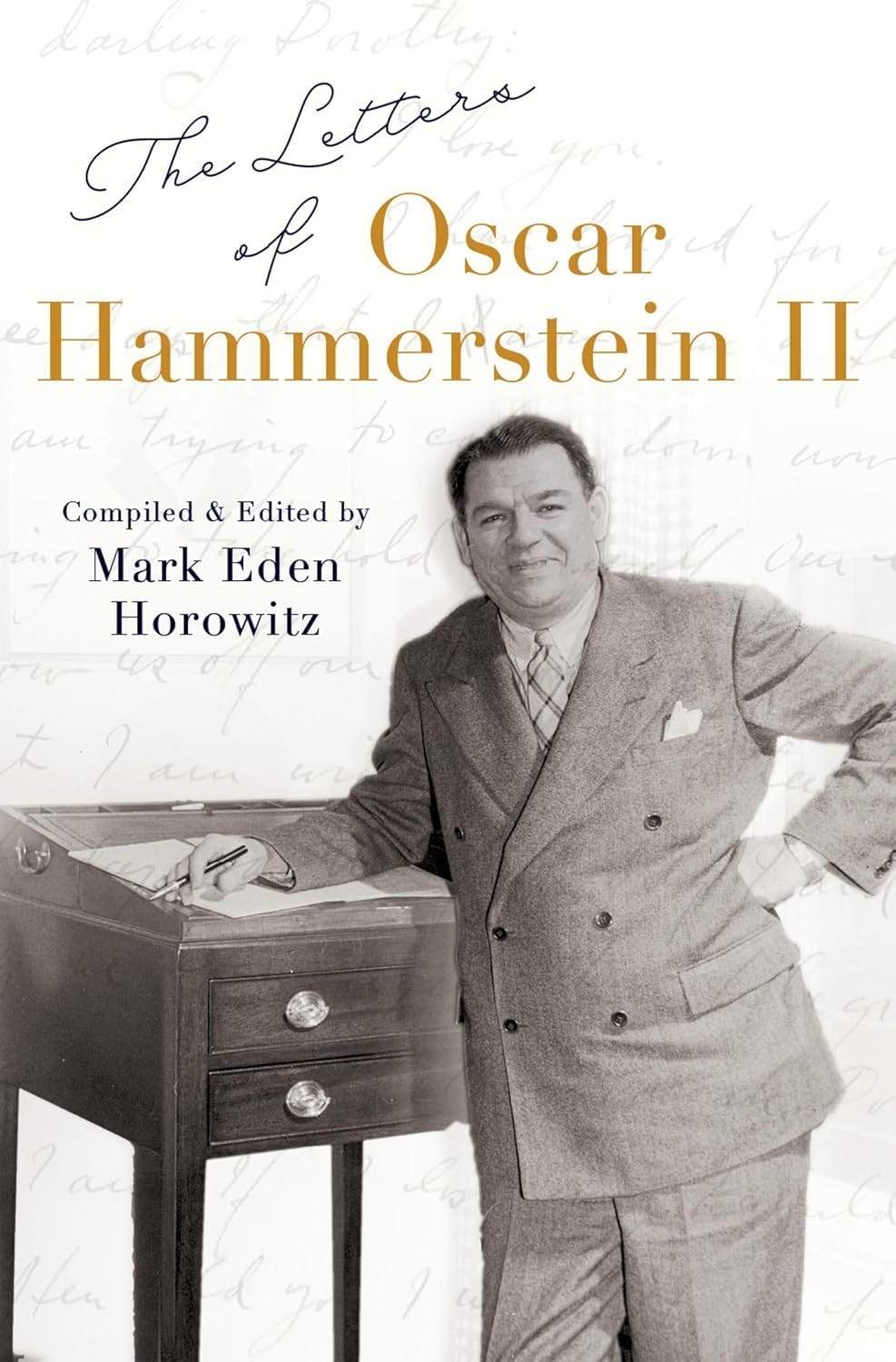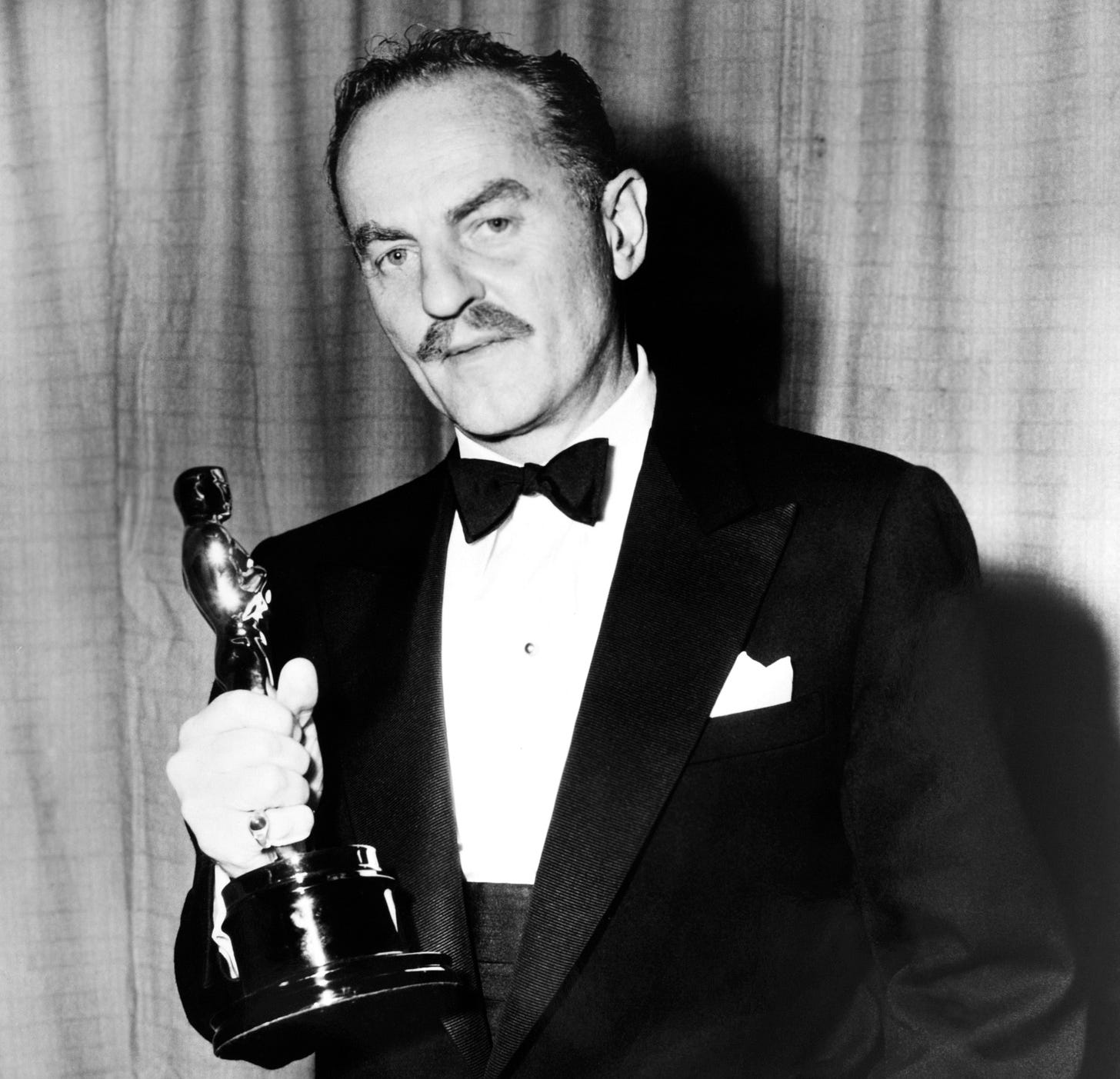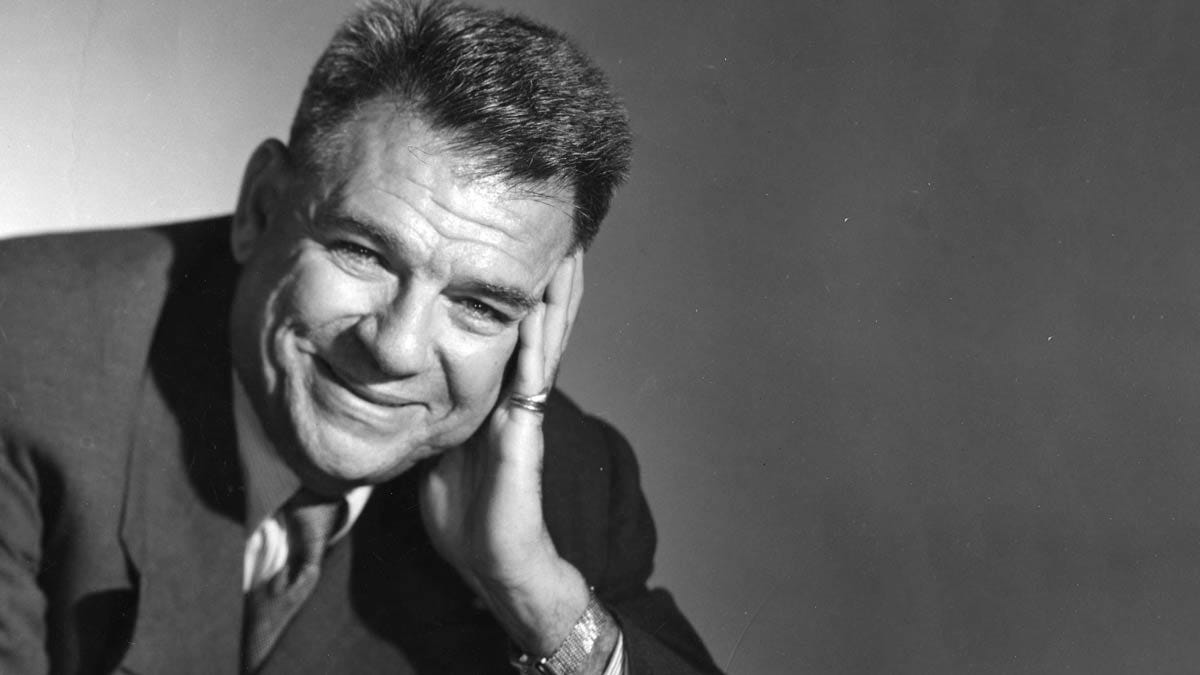Sinatra! Deep Cuts: Another Ride on the CAROUSEL(part 3 of probably 4)
Oc & Dick weigh in: “A very interesting and off-beat approach”
The Story So Far:
As another great songwriting team once wrote - in another song famously recorded by Sinatra - “Everybody has the right to be wrong.” For years, I had my own private theory as to why Sinatra did not ultimately appear in the movie version of Carousel: that Rodgers & Hammerstein thought he was too hip for the room, that as a performer he was larger than the character he was supposed to be playing, that when audiences saw him on the screen, they would be thinking of Sinatra and not of Billy Bigelow. One thing we learned from producer Henry Ephron’s memoir, which we discussed in the previous installment and will again, is that Sinatra apparently thought the same thing - that for whatever reason, Rodgers and Hammerstein did not want him in their movie.
Well, that’s one thing at least that I have in common with Sinatra, in this instance at least - we were both wrong. Rodgers and Hammerstein were such all-wise, all-knowing showmen that they were very much aware that Sinatra would have been a major asset to the film. Now, thanks to a new book, The Letters of Oscar Hammerstein II, compiled by Mark Eden Horowitz (published by Oxford University Press last year, 2022) for the first time we have real evidence of how R & H really felt. Because this is such a significant development, I’m devoting this entire installment to this first hard info as found in this excellent and highly-recommended book.
The first back and forth makes it clear that Sinatra was signed to play the role by mid-May; we know that he had been Jonesing for the part well before the movie version was even announced, and had even recorded a new version of the “Soliloquy” in the middle of February.
In the first letter, Fox studio head Darryl Zanuck lays out exactly why Sinatra would be perfect for the part: “I think that he was born to play this role. He has all of the necessary larceny and yet he has the tenderness.” I couldn’t have said it better myself! (And, not to keep knocking poor Gordy, one of the reasons that Gordon MacRae wasn’t particularly right for the part is that he wasn’t strong in either department, neither tenderness nor larceny.)
Darryl F. Zanuck, Vice-President in Charge of Production, Twentieth Century-Fox Film Corp. to Oscar Hammerstein, May 12, 1955
“ I have analyzed everything and I believe that Frank Sinatra will win another Academy award in CAROUSEL. I think that he was born to play this role. He has all of the necessary larceny and yet he has the tenderness and he has developed into a remarkable actor, which has already won him one Academy award. He is hounding me because he has so many other offers and he wants to leave free time in case we decide to take him.
I think perhaps if we played him opposite the young girl you have in OKLAHOMA this might be an ideal combination.”
Hammerstein is surprised that Zanuck wants to get Carousel into production so quickly, before Oklahoma! is even finished. As we will see, all three of the first major R&H movie musical adaptations would all be released within an eight-month period:
Oklahoma! - September 1955
Carousel - February 1956
The King and I -June 1956
Surprisingly the world was NOT suffering from Rodgers & Hammerstein fatigue by the Summer of 1956, although the team would not have a substantial new hit on Broadway between The King and I (1951) and Flower Drum Song (1958).
As we see in the next letter, R & H are very much on board with the idea of casting Sinatra, although he does also suggest Gordon MacRae as a fallback option.
Oscar Hammerstein to Darryl F. Zanuck, May 17, 1955
The “Carousel” situation should be cleared up within a week and I will let you know as soon as this has been done. Everything has been agreed upon, and it is a matter of drawing up papers.
I was surprised to learn that you expected to produce it so soon. It seems like a big order to organize a production this quickly, but I guess you are the man who can do it.
Regarding Sinatra, both Dick and I are inclined to agree with you that he would be a very interesting and off-beat approach to the casting of Billy Bigelow. Neither of us would object to your signing him. We think, however, that you ought to take one look at Gordon MacRae in “Oklahoma!” I know that up to now he has been a very unexciting singing leading man, but he comes into his own in this picture, and we believe he will be a very important star after it opens.
The idea of Shirley Jones (the lead in “Oklahoma!”) is a very good one.”
Zanuck likes the idea of Shirley Jones - but he also suggests Jean Simmons (even though she would have to be dubbed, as he says) - not least because he prefers to have a different cast from Oklahoma!, he doesn’t want the public to confuse the two movies. (Somehow Zanuck doesn’t mention that Sinatra is also, along with Simmons, in the forthcoming Samuel Goldway production of Guys and Dolls, which would be released in November 1955, in between Oklahoma! and Carousel, although not playing opposite each other.)
“Darryl F. Zanuck to Oscar Hammerstein, May 20, 1955
Dear Oscar:
Many thanks for your letter. I am delighted that both Dick and you like the idea of Frank Sinatra as much as we do for CAROUSEL. I think it would be a terrible mistake for us to use the same cast that you have in OKLAHOMA. In all probability CAROUSEL will be in the majority of the theaters in the United States before OKLAHOMA. As I understand it OKLAHOMA will open in a number of legitimate roadshow engagements. The same thing in our new process may also happen to CAROUSEL but on this point we are not yet definite.
It is my opinion that the ideal cast for CAROUSEL would be Frank Sinatra and Jean Simmons. This is a so-called “motion picture cast.” You have no idea how valuable this will be to us in Europe.
I have heard that Jean Simmons is simply sensational in GUYS AND DOLLS, and of course we know she is the perfect type, the right age, and she is an outstanding actress. She uses her own voice in GUYS AND DOLLS and does the two big numbers. In the case of CAROUSEL I assume we would have to dub her.
I can see no reason why we cannot be ready to start rehearsals and pre-recordings sometime at the end of July or in August. This will of course depend on the availability of the cast. This puts us in a position of being compelled to negotiate with them now.
This is the last letter in the book that pertains to the Carousel movie - and it’s worth noting that in these same letters, they’re also discussing the cast for The King and I - Oscar likes the idea of casting Dorothy Dandridge, who had recently done such a great job in the film version of his show Carmen Jones, as Tuptin, the part that would eventually go to Rita Moreno.
Oscar Hammerstein to Darryl F. Zanuck, May 26, 1955
Dear Darryl:
Your ideas for casting “Carousel” sound very good to both of us. It also seems to me that Henry King, from his many and varied credits, would be a very good prospect for the directing job. Speaking of directors, have you settled on anyone for “The King and I”?
On receiving your letter I phoned my lawyer and told him to hurry up on the deal so we could come out in the open with the whole thing. Papers are being drawn up and he expects to have it concluded very soon, but I will keep after him because lawyers are notoriously slow about these things.
Dick joins me in sending our warmest regards to you.
Sincerely,
Oscar Hammerstein II
Perhaps it’s not surprising that most of the popular culture revolving around movie moguls - not least the way they were usually depicted in their own films - portrays them is a bunch of bone-headed, money-grubbing morons, like those MGM executives who tried to cut “Over the Rainbow” from The Wizard of Oz. But Darryl F. Zanuck shows that he is highly capable in terms of casting and storytelling, he really knows what’s going to make a good movie and a profitable one. Small wonder that he’s considered one of the major innovators of the Hollywood studio system - what author Thomas Schatz famously described in his book, The Genius of the System.
In the next and possibly final installment of this Sinatra! Deep Cuts series, we’re going to look at the issue of Cinemascope 55 and producer-screenwriter Henry Ephron. In the meantime, here’s “You’ll Never Walk Alone” from Act II of Carousel; like “Soliloquy,” Sinatra would record this for the first time when the show was new, for Columbia Records in 1946, and then come back to it in 1963 for The Concert Sinatra with Nelson Riddle. According to Put Your Dreams Away: A Frank Sinatra Discography by Luiz Carlos Do Nascimento Silva, Sinatra did record a new version of “You’ll Never Walk Alone” expressly for the Fox film of Carousel on August 17, 1955, but this track has yet to be found. (Go, Chuck, go!) Strangely, Ephron, who talks about the pre-record sessions in some detail, doesn’t even mention it. Anyhow, let’s listen to the original Columbia recording as well as The Concert Sinatra version. (PS: don’t hold it against me if you grew up with a very Jerry Lewis singing this song every labor day…)
to be continued, and possibly even concluded, in part 4.
Very Special thanks to the fabulous Ms. Elizabeth Zimmer, for expert proofreading of this page, and scanning for typos, mistakes, and other assorted boo-boos!
Sing! Sing! Sing! : My tagline is, “Celebrating the great jazz - and jazz-adjacent - singers, as well as the composers, lyricists, arrangers, soloists, and sidemen, who help to make them great.”
A production of KSDS heard Saturdays at 10:00 AM Pacific; 1:00PM Eastern.
To listen to KSDS via the internet (current and recent shows are available for streaming.) click here.
The whole series is also listenable on Podbean.com, click here.
SPECIAL ENCORE PERFORMANCES!
December 31: The Early Years 1935-42 hosted by Will Friedwald
January 1: The Columbia Years 1943-’49 hosted by Ken Poston
January 2: The Radio Years: hosted by Chuck Granata
January 3: The Fall and Rise (1950-’54) hosted by Will Friedwald
January 4: Frank and Nelson hosted by Will Friedwald
January 5: The Capitol Years hosted by Loren Schoenberg
January 6: Bonus! Sing! Sing! Sing! Some Frank Conversation with Adam Gopnik
January 7: The Movies: Hosted by Chuck Granata
January 8: The Early Reprise Years 1960-'65 hosted by Loren Schoenberg
January 9:The Concert Years hosted by Ken Poston
January 10: The Rat Pack hosted by Ken Poston
January 11: Inside the Studio hosted by Chuck Granata
January 12: Bonus! In the Wee Small Hours with AJ Lambert (Sinatra’s granddaughter)
January 13: 1965-1974 The Main Event hosted by Will Friedwald
SLOUCHING TOWARDS BIRDLAND is a subStack newsletter by Will Friedwald. The best way to support my work is with a paid subscription, for which I am asking either $5 a month or $50 per year. Thank you for considering. (Thanks as always to Beth Naji & Arlen Schumer for special graphics.) Word up, peace out, go forth and sin no more! (And always remember: “A man is born, but he’s no good no how, without a song.”)
Note to friends: a lot of you respond to my SubStack posts here directly to me via eMail. It’s actually a lot more beneficial to me if you go to the SubStack web page and put your responses down as a “comment.” This helps me “drive traffic” and all that other social media stuff. If you look a tiny bit down from this text, you will see three buttons, one of which is “comment.” Just hit that one, hey. Thanks!








1963 version is powerful, and long lasting. Sinatra performed it live into the 1980s. Can’t remember if he sang it in the 1990s. However, there is the question of the missing segment during The Concert Sinatra recording session ? Was it because of the expanded audio spectrum and limits of LP manufacturing?
I remember hearing on Jonathan Schwartz’ show a bootleg-sounding recording of Sinatra and Jones singing “If I Loved You” for the film and their power broke through the static of the recording. I always thought it was a shame he didn’t do the film.